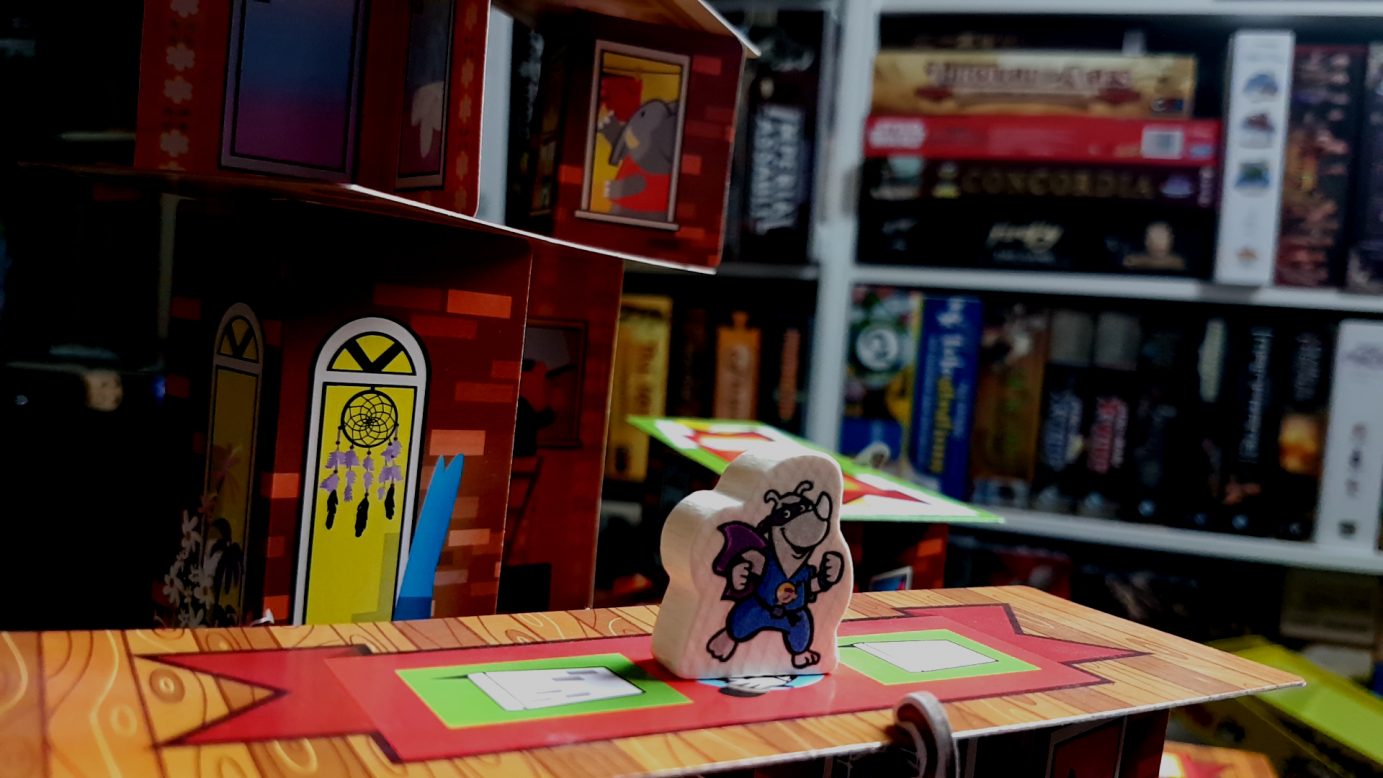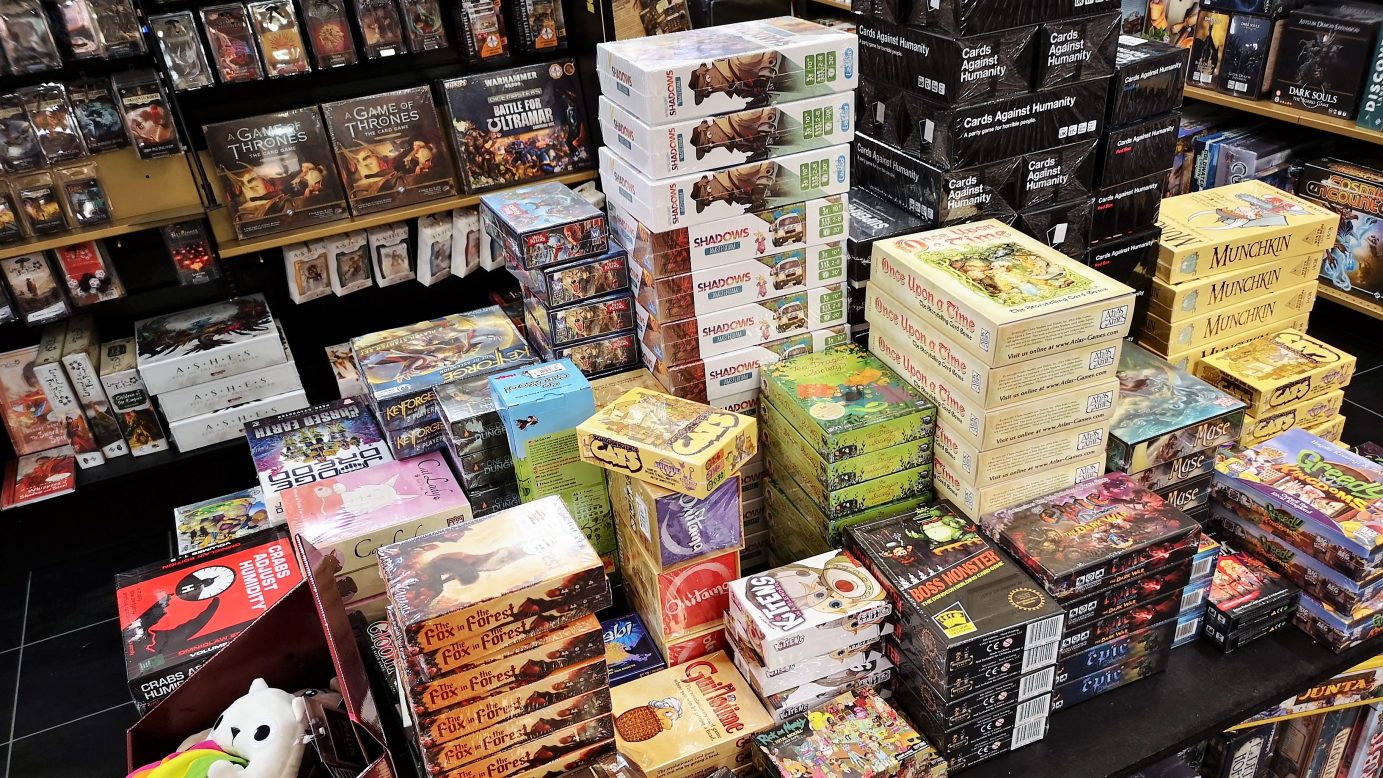Number Five – If you like Poker You’ll probably love Skull
Okay, this one might be a little bit of a stretch because it depends on what you like about Poker. The thing is that Poker is really two games. One is a relatively tedious exercise in assessing probabilities, and that’s handled by the cards. The other is a satisfying experience of assessing your friends, their intentions, and what they’d do under certain situations. My view is that people put up with the actual messy business of the hands in order to get access to the more sophisticated fun of (failing) to read intention into the faces of their friends. The cards are there so that there’s something to read in the first place.
/pic186610.jpg)
So when your friends say ‘Ah, nothing is going on. Who fancies a game of poker?’, you can say ‘You know… biker gangs in America determine leadership through games. But they do it with a game called Skull. Do you fancy giving that a go instead? It has all the good stuff of Poker but none of the arithmetic.’

One of Skull’s main selling points is that you can play a homebrew version with a wide range of components that you probably have already to hand. You can play it with a standard deck of cards. You can play it with beer mats. You can play it with pen and paper, and I frequently get students to do exactly that in my Cardboard Prototyping classes. And the great thing is that once you’ve improvised a set you get a fascinating game of laying down traps and simply seeing which of your friends can look you in the eye and convince you their bid is honest.
I’d happily play Poker over many games, but I’d enthusiastically play Skull over any game of Poker. You can even bet on the results if you like.
Number Four – If you like the Game of Life you’ll probably love Fog of Love
I was going to go a different way with this one and say if you like the Game of Life you’d probably love CV. And yeah, I think that’s a stronger candidate for ‘a game like another game’ here. The problem is… I don’t love CV. It’s basically okay, but I can’t bring myself to have greater levels of affection.
/pic288405.jpg)
The thing with the Game of Life though is that it’s basically a simple form of wish fulfillment. You’ll take life paths you didn’t in your real life, have careers that are sadly impossible for you to pursue, form relationships that maybe are too cumbersome for reality. It’s a game of exploring scenarios. And CV is very much that too.

But I think if I was going to recommend a game I think you might legitimately love rather than merely enjoy, Fog of Love is where my mind would go. For larger groups you’d likely have to play it in turns or in teams, but it’s a phenomenal way of exploring the path not taken. It’s a great spectator game too – watch two of your least emotionally open friends try to navigate their couple around a trip to IKEA and it’s fun for everyone watching. Fog of Love is a little more mechanically complex than the Game of Life, but in return for something of a learning curve you’ll get the best life simulator that cardboard can offer. Just maybe… maybe be careful who you play it with.
Number Three – If you like Snakes and Ladders you’ll probably love Jamaica
think it’s probably a stretch to say anyone loves Snakes and Ladders. It’s a game you play because children want to play it and children are rubbish. Look at that useless baby in that cradle. You can’t play Lords of Vegas with them. They probably don’t even know what money is. They don’t have a grasp on probability. They can’t even roll dice. Good going, baby. You ruined game night.
/pic8203150.jpg)
But you know, if you were looking for a nice upgrade from the simple roll and move then you can’t go far wrong with Jamaica. You use cards instead of dice, but it’s still a game of wanting to go somewhere and being constantly frustrated by the hand of fate reaching in and messing up your near term future. Plus you all get to be pirates! Look at the box – it’s like opening an old timey treasure chest!

You might need to wait until the kids are a bit more mature before ‘graduating’ them on to Jamaica though. It’s probably fine for those that are six or older, which is a fair cry from the 3+ that Snakes and Ladders supports. Once they’ve grasped the finer points of seriation though you’ll find Jamaica is a game that they don’t just tolerate, they actively look forward to playing. Imagine that! A game for kids that’s actually fun for adults too! That’s Jamaica.
No, she did it all by… oh, wait – I’ve made that joke before.
Number Two – If you love Jenga you’ll probably love Rhino Hero: Super Battle
Jenga is a pretty underrated game, as can be seen by its intensely effective but obscure application to the Dread roleplaying system. It’s a bit… nothing… though. No variation in the game. No scope for really immersing yourself. It’s a dexterity challenge shorn of all its pretentions, but also its ambitions. Not a bad game by any stretch of the imagination but there’s not a lot of mystery once you’ve played it once.
/pic5140451.jpg)
The thrill of Jenga though is in the escalation. Every new block ratchets up the probability – it’s all going to come crashing down at some point and that’s the moment of release to which everyone is building – and unbuilding. It’s cathartic.

And I think Rhino Hero Super Battle succeeds in improving every aspect of the game. It’s a lot more strategic, as well as offering opportunities for risk-taking and reaping associated rewards. You can build massive, complex structures and that sense of investment into the process makes its inevitable collapse even more satisfying. And then the little superheroes you need to move around add something that’s otherwise missing from Jenga – unpredictable stresses applied to the structure without pre-planning. Having to move these heavy meeples around a rickety building and having them force others up and down the structure… it results in architectural flaws being exposed at the end of every placement and that increases the stakes of everything you do.
Number One – If you love Scrabble… you should just keep playing Scrabble
Yeah, okay – this one is a bit of a cop-out but the simple fact is… in my view, no modern word game has come close to Scrabble, much less obsolete it. Scrabble remains the perfect word game because it remains the perfect war game. What better use to put words than as ordinance that only ever inflicts psychological wounds?

I am a big proponent for Scrabble. A fierce champion for its retained relevance. I judge every word game against this yard-stick and not one has measured up. So here if you have a friend that wants to play Scrabble, I say this to the hobbyist crowd… give Scrabble another go. I don’t want this list to make the argument, even implicitly, that newer is always better. Sometimes the best game that you can play in a particular niche is the one that everyone already knows. Our ancestors and older relatives were not starved of great gaming entertainment. Sometimes the reason why things outlive their historical context is because of the whims and vagaries of random happenstance. Sometimes, in the case of Scrabble, it’s because they were pretty much perfect at the time.
So the final takeaway here is – don’t turn your own nose up at classic games. Sometimes they’re better than anything else the hobby has to offer. Give them a spin – you might be surprised by how much you enjoy it.
[ previous page | next page ]
